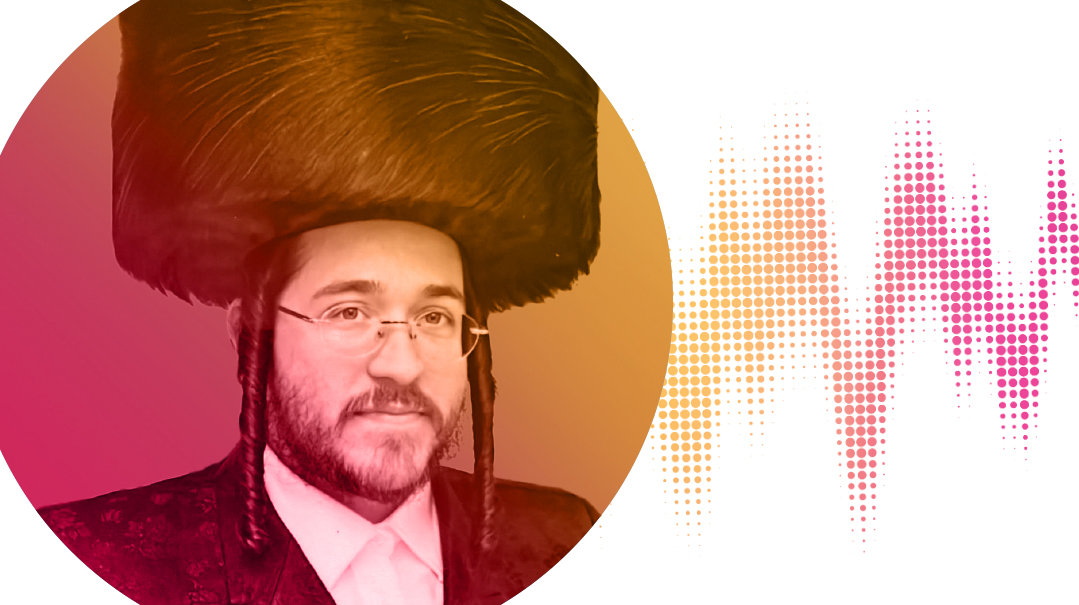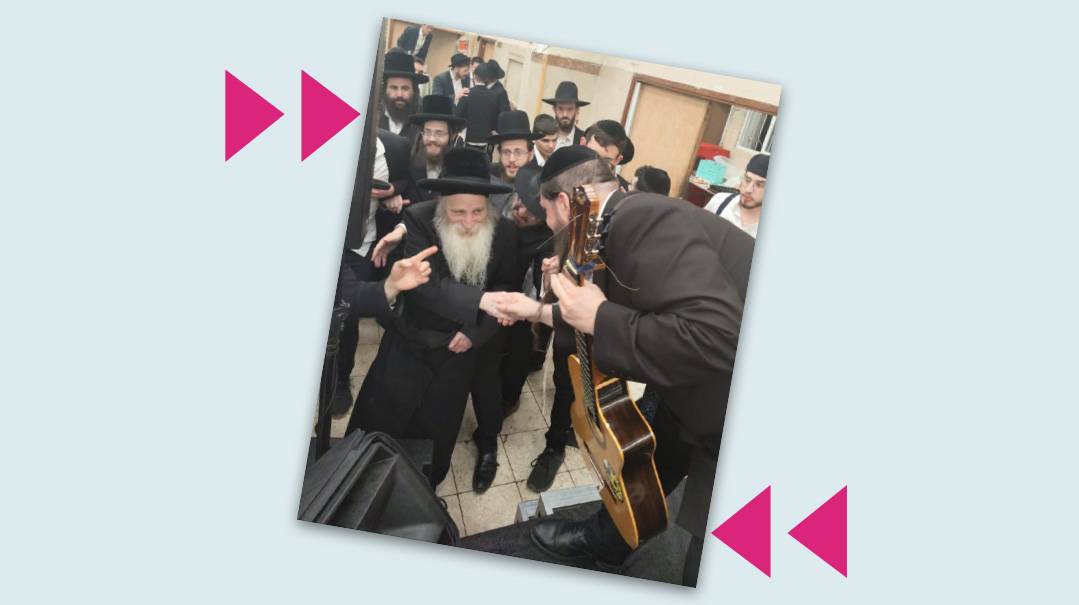Born into the Business
| September 29, 2020When your father is a popular recording artist,composer, musician or producer, where does that leave you and your talent in the industry? Musical sons share the stage
Singer YISROEL (Sruly) WERDYGER, son of industry maven and music producer MENDY WERDYGER
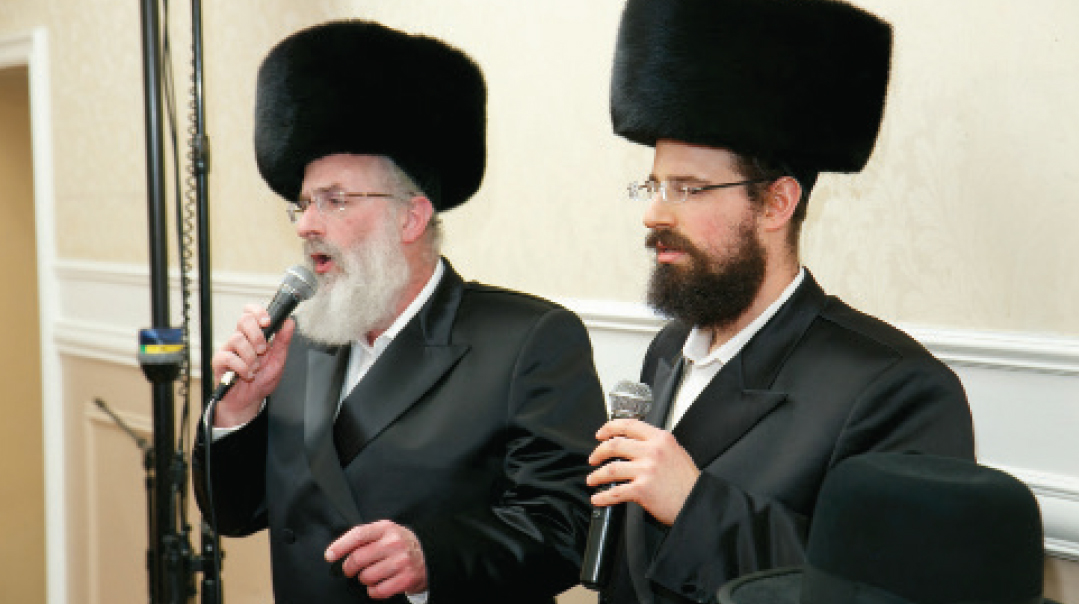
THE MOMENT I KNEW I MADE MY FATHER PROUD
I hope I’m constantly making him proud of me, but one early memory was when the Gerrer Rebbe, the Pnei Menachem ztz”l, was in America in 1994. My father conducted the choir in honor of the Rebbe, and I was a child soloist.
THE SOUNDS I TOOK FROM MY FATHER’S SHABBOS TABLE
A Shabbos table atmosphere is actually comprised of many components, not only of how the father in the family wants it or expects it to be. It depends on the age of the children, the size of the family, the nature of the children, and the family makeup of girls and boys. I’m the oldest child in the family, there were no married family members when I was growing up, and I loved to sing at the Shabbos meal. Obviously, the dynamics of that changed over the years, with new family members coming into my parents’ home. We sang mostly Gerrer and Modzhiter tunes. In my own family, the zemiros are somewhat less formal, but not all that different. We sing a lot of Chabad niggunim, some contemporary tunes, as well as many traditional Shabbos zemiros from Vizhnitz and the like.
MY FATHER’S MUSICAL INFLUENCE ON ME
I actually sound very similar to my father, and when I started out, people would comment on that. There’s no question that my singing was influenced heavily by my father in many ways, and by extension I was also influenced by my grandfather, Chazzan Dovid Werdyger a”h, and of course by my uncle Mordechai Ben David. I’ve heard people say that they hear the Werdyger “hartz” in my singing. I think what they mean is a certain style of expression, hard to define in words, that characterises how our family sings. It’s a humbling task for me to be able to continue the legacy.
MY EARLIEST MUSICAL MEMORY OF MY FATHER
I was a very young boy when I accompanied my father to the studio while he was recording one of his Chaveirim albums. I was awed by the way the music sounded in the studio and how everything came together on a huge two-inch reel — equipment which is basically extinct today.
HOW MY FATHER’S PRESENCE IN THE INDUSTRY AFFECTS MINE
Both my father’s and grandfather’s presence in the music business still accompanies me on my own musical journey every single day. There’s hardly a wedding where I’m not stopped and told, “Oh, I sang with your father as a boy,” or “Wow, I grew up on your grandfather’s records,” or “Sruly, I remember your father, I was in his class and we always sang together,” so I’m constantly reminded that I’m a link in an esteemed musical chain.
WHEN I REALIZED I’D JOIN MY FATHER IN THE INDUSTRY
When people ask if I always knew I’d be in the business like my father, the answer is absolutely not. I actually didn’t even dream that I would become a singer. It was just a “mistake” gone bad, or maybe good. I initially tried my luck at it and at one point decided to really go for it all the way.
WHAT IT’S LIKE TO FEEL THAT I’M FOLLOWING IN MY FATHER’S FOOTSTEPS
Look, I try. That’s my goal. My father is a master at what he does. Every day I try to get one step closer.
MY FATHER’S INPUT IN MY MUSIC
Of course I ask him for input on music as well as everything else. Asking parents for advice is one of the tenets of Yiddishkeit.
Musician and singer ELI SCHWEBEL, son of singer, baal tefillah, and klal askan RIVIE SCHWEBEL
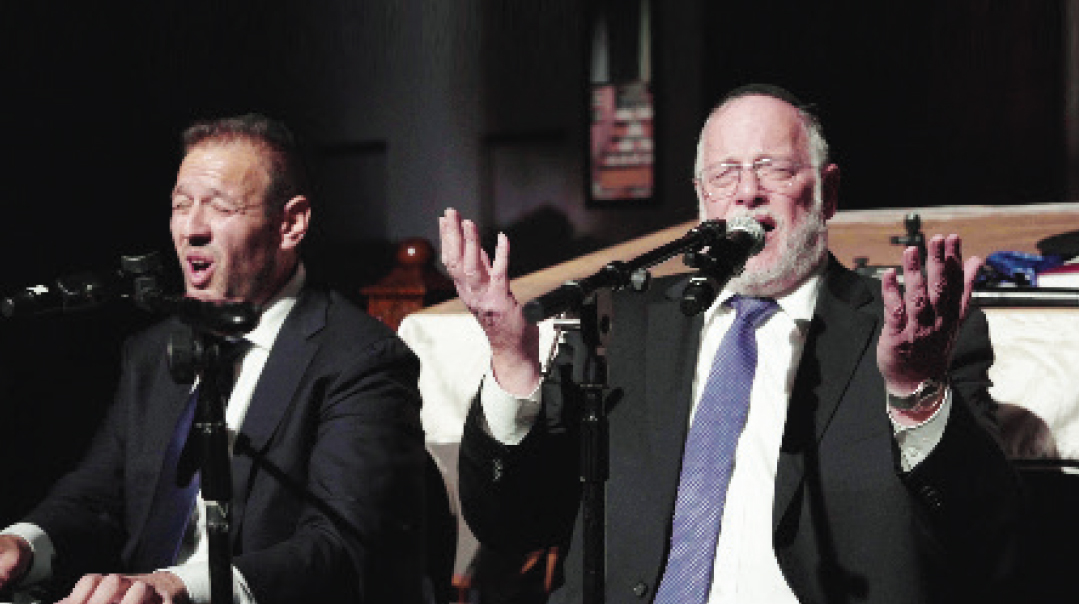
THE MOMENT I KNEW I MADE MY FATHER PROUD
One moment would be about ten years ago when I started leading the “Schwebel choir,” which stood around my grandfather on the Yamim Noraim. That was something epic. Today, I lead the choir around my father. Then there was the first time that I did the pre-Selichos kumzitz at the Red Shul in Cedarhurst. It was just me and my father on the piano — very professional and totally seamless. I think it was very gratifying for him, that he had a lot of nachas.
THE SOUNDS I TOOK FROM MY FATHER’S SHABBOS TABLE
I love the new stuff, but when it comes to the real thing, I’m still attached to the classics. We both go for the same Shabbos zemiros, and we sing as a family, so the music gets inside you. Two favorites we both sing are Abie Rotenberg’s “Yedid Nefesh” and “Menuchah Vesimchah.”
MY FATHER’S MUSICAL INFLUENCE ON ME
There’s my power vocal, the high notes, although I don’t reach them exactly like my father does — I do it a little sweeter. I have a similar tone to my father and utilize a lot of his trills and vocal moves. Sometimes people tell me that they can’t tell the difference between our vocals. A singer’s tone is natural to him, but on the other hand, you sing like the people you model, which is the reason a lot of singers today kind of sound the same. In the frum world, MBD defined how to sing a kneitch, and most people copied him. The way I express myself is similar to my father, because since I was a kid, I’ve been learning how to sing from hearing him. Subconsciously, it became my style.
MY EARLIEST MUSICAL MEMORY OF MY FATHER
When I was three or four, my father would take me up to the front of the shul on Rosh Hashanah and Yom Kippur. I saw the towering figures of my father and uncles, all six-foot-something, with their talleisim draped over their heads, surrounding my grandfather, the baal tefillah, and singing with him. It was my grandfather who taught me the importance of believing in and meaning every word you say, and that the musical expression has to fit the meaning.
HOW MY FATHER’S PRESENCE IN THE INDUSTRY AFFECTS MINE
I started Lev Tahor with a group of friends when I was 19. My father owned a studio in Jerusalem’s Givat Shaul neighborhood where we went to record, and he also introduced us to our first producer. Both my parents were very supportive of my music throughout those early years. By now I’ve gone my own way, developed into my own artist, and I have a lot of my mother and my grandmother in me, too. I had to reach very deep down to figure out my own musical path, but it’s been very rewarding.
WHEN I REALIZED I’D JOIN MY FATHER IN THE INDUSTRY
It was always my dream. More specifically, my dream was to play in Lincoln Center, and that dream came true, through Lev Tahor.
WHAT IT’S LIKE TO FEEL THAT I’M FOLLOWING IN MY FATHER’S FOOTSTEPS
Every time I sing a song of his I feel that way. As a person, halevai I’ll reach those levels.
MY FATHER’S INPUT IN MY MUSIC
I run my own music by him all the time. Yet because I’m my own artist and make my own musical decisions — it doesn’t often cross my mind what my father would do. Woe to the artist who thinks that way. My grandfather sang only chazzanus, so my father went his own way musically too. He came of age in the sixties and seventies, and I came of age in a different generation, so obviously that has a strong impact too.
Producer and Arranger RUVI BANET, son of composer REB CHAIM BANET
THE MOMENT I KNEW I MADE MY FATHER PROUD
My father always enjoys seeing me in the studio, but some moments stand out. This past winter, I led my orchestra at the Dirshu siyumim of Shas in New York, London, and Paris. My father didn’t travel with us, but he had a lot of nachas watching the siyumim.
THE SOUNDS I TOOK FROM MY FATHER’S SHABBOS TABLE
Our tables are very similar. I sing very chassidish niggunim with my children, from Vizhnitz and Skulen, and I’m trying to raise them in the same kind of atmosphere in which I grew up.
MY FATHER’S MUSICAL INFLUENCE ON ME
I’m pretty versatile musically. I worked with Lipa on most of his albums, where I produced and conducted much more modern music in order to serve my clients. But the music I still love best is Abba’s type of music. When I get authentic chassidic music to work with, I enjoy every minute of it. Now, for example, I’m working with Motty Steinmetz on an album of vintage niggunim, mostly Vizhnitz songs. Two singles are already out, one of them the Slonim “Ve’omar Bayom Hahu,” for which I wrote the arrangements. That’s what I like to be busy with — real music. Abba’s songs are that real music, and for me they’re part of the soul of my Yiddishkeit.
MY EARLIEST MUSICAL MEMORY OF MY FATHER
I remember when his classic songs were born, from a tune hummed at home to a song that would inspire the entire Jewish world. When I was four or five, Abba would often compose a new song on Shabbos, one part at a time, and we had to help him remember it. I remember accompanying him to the studio, meeting Mona Rosenblum and Moshe Laufer. Then there was the time that our entire cheder went on a trip, and I didn’t want to go. I wanted to stay home while my brothers went and listen to music on the record player, uninterrupted.
HOW MY FATHER’S PRESENCE IN THE INDUSTRY AFFECTS MINE
I work with Abba a lot, because he records his children’s choir in my studio. Sometimes he sits and learns, right there in the studio, and his seriousness, the way he conducts himself, sets an example for the children and is always there with me. Some of the choir boys from long ago, like writer Chaim Walder, consider him a paternal influence decades later. At times I might do more modern work, changing the beats, but Abba is there to watch over me. “Es past nisht,” he says, and I’ll cut it out.
The truth is that I’ve also grown out of some of the cutting-edge music I arranged in my twenties. I think that music is not as much a matter of generation as a matter of age. The wilder music is primarily for the youth, but even they grow out of it. So many musicians and singers feel that they have to include an electronic song on their albums today, to cater to the young people and the radio audiences. We do it, but it hurts.
WHEN I REALIZED I’D JOIN MY FATHER IN THE INDUSTRY
I was always busy with music. In the beginning I composed a little, like “Ke’ayol Ta’arog,” sung by Ephraim Mendelson, but then I moved into production and conducting music.
WHAT IT’S LIKE TO FEEL THAT I’M FOLLOWING IN MY FATHER’S FOOTSTEPS
Abba composes, and I produce and arrange, so it’s not exactly the same line of work, but today I do walk in his footsteps in terms of musical taste. When I was younger, I liked more flamboyant, showy, musical arrangements, but now I guess I think more like him, that the music is there to serve the song.
MY FATHER’S INPUT IN MY MUSIC
I play him a lot of things in the studio. It’s important to me to hear what he thinks.
Arranger and wedding band leader BENNY LAUFER, son of arranger MOSHE LAUFER
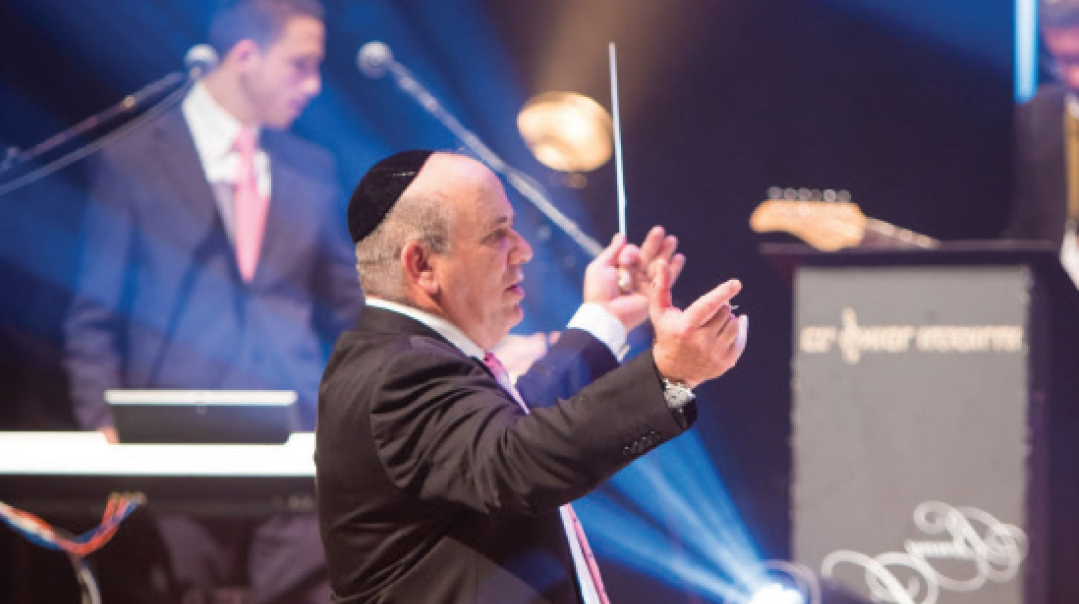
THE MOMENT I KNEW I MADE MY FATHER PROUD
A couple of months ago we held a special celebration, produced by Radio Kol Chai, to mark 40 years of Abba’s career in music. I wrote the arrangements and led my orchestra, and I knew he was really proud of what I’d built on his foundation.
THE SOUNDS I TOOK FROM MY FATHER’S SHABBOS TABLE
I’m a fresh newlywed, so we’re still spending Shabbos with our families. The singing is always beautiful at my parents’ house, especially when all the brothers sing together. My wife is also very musical, so my wish to us is that we will have a home like my parents, full of music and light.
MY FATHER’S MUSICAL INFLUENCE ON ME
Abba uses a lot of violins in his arrangements, which I also like, so that’s one small example. But I want to stress that it’s really all from him — he’s been my inspiration since I was a kid. Abba is very much drawn to authentic music, the real chassidish niggun. Personally, I like contemporary sound too, but there is no doubt that what really helps us connect spiritually is the older, more authentic music. I’d like to continue preserving that authentic sound, tailoring it to a new generation.
MY EARLIEST MUSICAL MEMORY OF MY FATHER
He had a workroom downstairs, under our home, and I would go down to hang out with him there. He sat with pencil and paper, writing music that would become the soundtrack of Jewish homes and simchas.
HOW MY FATHER’S PRESENCE IN THE INDUSTRY AFFECTS MINE
I was born into a world of music, and my father’s impact will always accompany me. I don’t know if I would be a musician today without him. He opened a lot of doors for me at the beginning of my career, and the name “Laufer” obviously accompanies me wherever I go. I benefit from the respect he has earned.
WHEN I REALIZED I’D JOIN MY FATHER IN THE INDUSTRY
I guess it was something I always knew, from the time I was old enough to understand.
WHAT IT’S LIKE TO FEEL THAT I’M FOLLOWING IN MY FATHER’S FOOTSTEPS
We have our differences of opinion about what people are looking for today. I’m generally on Abba’s wavelength, and he paved me a path, but I was born into a generation that has a different musical taste, and I think I understand more of what they want.
MY FATHER’S INPUT IN MY MUSIC
I very often ask my father for advice, and I actually listen to it. I once showed him an arrangement I’d written, and Abba said that the bridge, the transitional part of the song, didn’t fit well. I was sure it was good, and I debated a lot about it, but in the end, when I heard the whole thing with his version of the transition, I understood that he was right. There’s nothing that can replace his far greater experience. Abba’s influence runs so deep inside me that I can hear in my head the way he’d like it to sound, but I know how I would like to hear it too.
One-man band and arranger YANKY BRISKMAN, son of musician, band leader, and producer YOCHI BRISKMAN
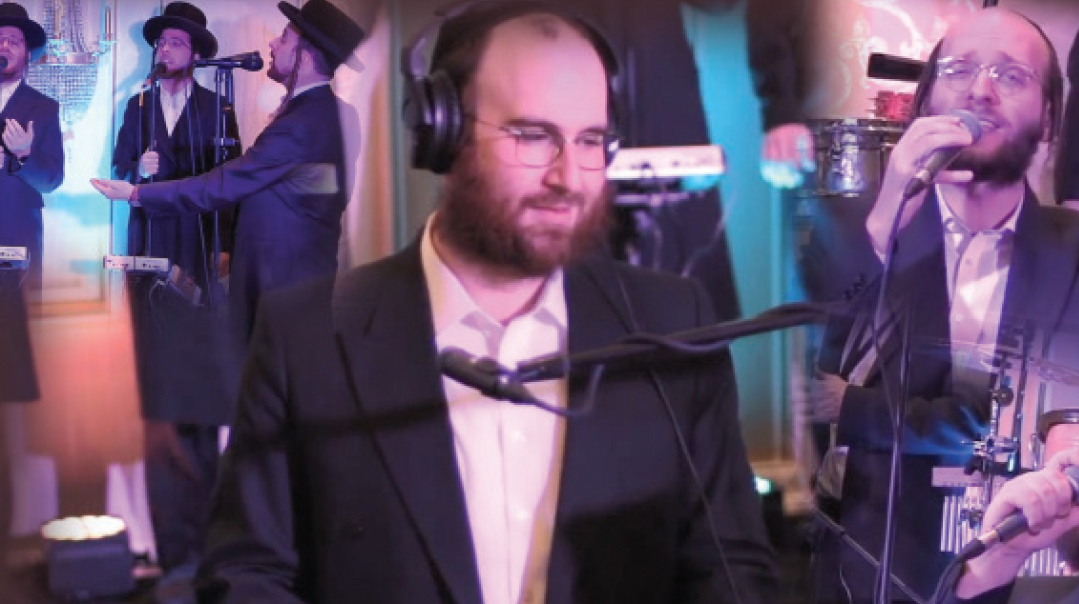
THE MOMENT I KNEW I MADE MY FATHER PROUD
Honesty is a big point for my father, so he’s proud when he hears that I’m careful in that way. I remember when I was a bochur, my father turned down a $10,000-in-one-night opportunity because he was previously booked for a regular wedding, and the chassan didn’t want him to switch. If he meets people who tell him that they’ve used me at their weddings, and I’m a mensch, he’s pleased. It means that he raised us well.
MY FATHER’S MUSICAL INFLUENCE ON ME
Everything comes from him. Living in the same house, I was a music student as well as a son. When I started to learn the drums, I had a teacher, but I also had my father showing me how to play — and my parents allowing me to bang away to my heart’s content, although we lived in a Boro Park apartment. Later, I switched over to keyboard. Occasionally, he’d let me take over the keyboard and play with his band for a few minutes at an event, and that was a highlight for me, a huge boost.
MY EARLIEST MUSICAL MEMORY OF MY FATHER
As a two-year-old, I’d sit on his lap while he played the drums. I’m sure that helped the rhythm get into my soul.
HOW MY FATHER’S PRESENCE IN THE INDUSTRY AFFECTS MINE
When I was just starting out, my father got me some jobs with Neginah Orchestra. Then he gave me major opportunities, such as writing arrangements on albums he was producing for artists like Shloime Daskal, Shwekey, Simcha Leiner, and Shulem Lemmer. When it comes to my wedding work, which is now most of my work, I think that being his son helped me indirectly. A new musician can have a hard time getting entrusted with those first few jobs, but when it runs in the family, people definitely feel more confident in you.
WHEN I REALIZED I’D JOIN MY FATHER IN THE INDUSTRY
I knew I was always going to be a musician, but actually, I thought I would be a drummer. When I began to play keyboard, I figured it would be secondary, but it soon took over as my main instrument.
WHAT IT’S LIKE TO FEEL THAT I’M FOLLOWING IN MY FATHER’S FOOTSTEPS
We’re both in music, and we both play the drums, but nowadays most of my father’s work is in big productions, and most of mine is as a one-man-band. Still, I try to follow in his footsteps when it comes to honesty and integrity, and although we’re in different generations, his musical taste has obviously had a big influence on me — I mostly agree with him. I also constantly hear from people, wherever I’m playing, even abroad, that they know my father and I should send regards.
MY FATHER’S INPUT IN MY MUSIC
I always ask for his input, not just in music but in life, in everything. We’re very close, and I find myself turning to my father with issues that others would discuss with their rebbe.
(Originally featured in Mishpacha, Issue 830)
Oops! We could not locate your form.







